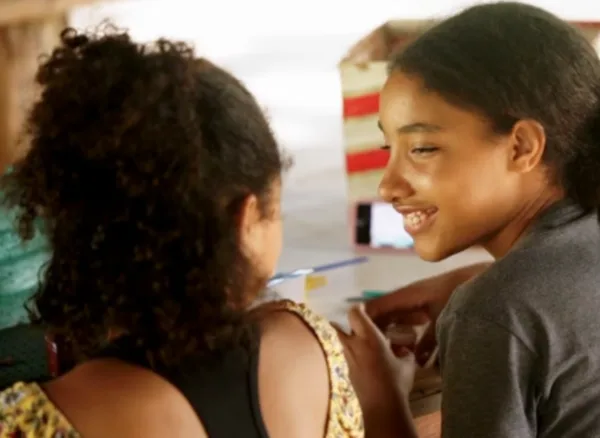Menu

An intervention piloted with kindergarteners in the Philippines led to measurable improvement in resilience, emotional regulation, kindness, and critical thinking.

Power of Zero (PoZ), an international non-profit organization led by CEO Nicholas Carlisle, has made it their mission to safeguard children’s well-being online by equipping them with the essential life skills they need to thrive both online and offline.
At a time when “children as young as four months old are introduced to screens, and by age eight are spending an average of five hours a day online, it’s more important than ever to ensure they’re equipped with tools that nurture character strength and encourage digital literacy,” says Carlisle. “Children can and should be taught these strengths from an early age to harness the positive potential of the internet while protecting themselves from its risks.”
The Superpowers Program is designed to foster childrens’ development of social-emotional learning (SEL) skills to leverage the positive potential of the online world while protecting them from online harms. The program consists of 24 lesson plans and learning activities, classroom posters, and an animated video series. The program also provides resources for teachers and parents. Parents receive comprehensive handbooks, while teachers participate in training sessions to support the program’s implementation in the classroom, building a community of support around children as they navigate their online lives.
With TWCF funding, the Superpowers program was recently piloted in the Philippines.
PoZ collaborated with the Philippine Mental Health Association (PMHA) and the Assessment and Evaluation Research Centre (AERC) at The University of Melbourne, to conduct this pilot study in kindergartens across Quezon City and Batangas in the Philippines.
In the video below, Professor Therese Hopfenbeck and Dr. Emma Carter from AERC share learnings from the pilot.

To collect quantitative and quantitative data and evaluate the program, the research team designed and employed three surveys and facilitated focus group discussions.
The Children’s Online Lives Survey gathered data from parents and teachers of kindergarten children (ages 4-6) on children's access to digital devices, internet usage, and how the adults felt about giving kids guidance in navigating online opportunities and risks.
The Character Strengths Survey was used to measure the development of key SEL traits, such as resilience, kindness, and critical thinking, before and after the program.
A post-participation survey was developed for teachers and parents and administered at the end of the program to evaluate program fidelity, assess increases in teachers’ and parents’ confidence and self-efficacy in supporting young children’s development of character strengths for navigating their online-offline lives, and gather suggestions for further program improvement.
Significant improvements were observed in children’s growth across four selected SEL traits (resilience, emotional regulation, kindness, and critical thinking) after participating in the Superpowers program. Resilience saw a 0.96-point increase, emotional regulation improved by 1.06 points, kindness increased by 1.15 points, and critical thinking experienced the most notable growth, with a 2.13-point increase.
Additional improvements in character strengths including respect, voice, friendship, and safety were also observed.
Overall improvements in children’s emotion regulation were highlighted by 65% of participants across all data sources. “The Superpower Program is a great program which will shape the overall growth of a student. This is also where students learn the right behavior that they can use in the future,” said a participating teacher. A Quezon City teacher shared: “Since I started Superpower in my class, the children had big improvements. The shy children became more talkative.”
Participants also spoke about children’s increased capacity to control their emotions by calming themselves when faced with challenges. For instance, a Batangas City parent said, in relation to their child’s improved behavior around challenges, “My child [had] tantrums when he would see something that he likes. When he couldn’t get something, he cried. Now, he does not [have tantrums] anymore, and understands that if something is not allowed, it’s not allowed.”
Other participants noted that students had greater discipline and appreciation of the importance of time limits when using devices, as expressed by one Batangas City parent: “We were happy because he would put the cell phone in the cabinet by his own will... I was happy because I no longer set a time limit for his gadget use.”
Teachers reported feeling more at ease and more effective in delivering SEL lessons and digital literacy education, specifically:
Parents reported gaining newfound confidence in shaping their children’s digital lives by promoting appropriate use of the internet and use of devices at home. Specifically, after participating in the program:
Read the full evaluation report here.
As the digital landscape continues to evolve, PoZ envisions scaling the Superpowers Program to reach more children. Development of more hands-on and age-appropriate activities, expanded timelines for implementation, and a deeper contextualization to local settings are key areas where further investment and research can make a difference in scaling up the program.




